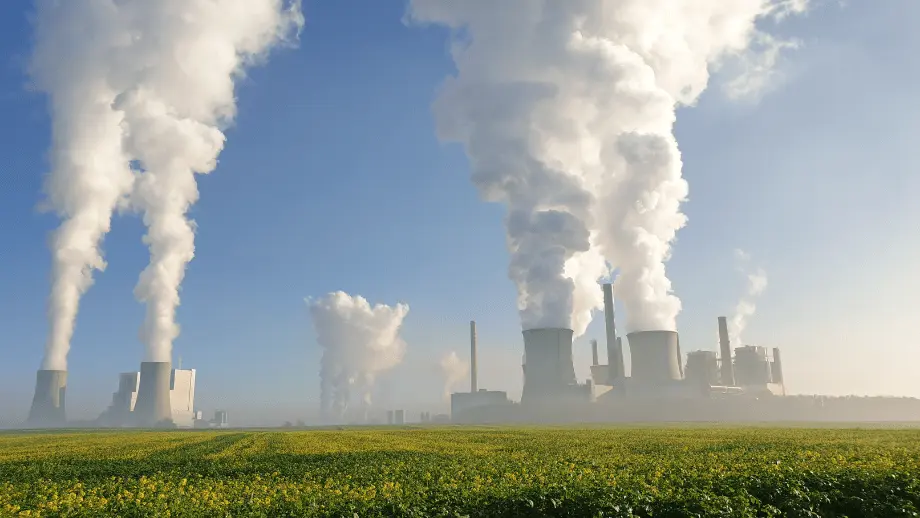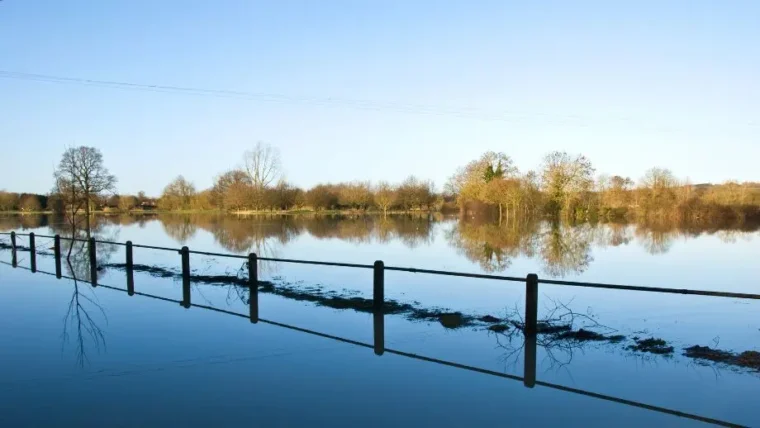Fortnightly Bulletin – 6th March 2023
7 March 2023

Legal Updates
Environmental Protection (plastic plates etc. and polystyrene containers etc.) (England) Regulations 2023
New regulations are coming into force later this year, which will ban the supply of a range of single-use plastic items in England. This will include plastic cutlery, plates, trays, bowls, balloon sticks and single-use expanded and extruded polystyrene containers. Included in the ban will be plastic that is bio-based, biodegradable or compostable.
The regulations have significant impacts for any businesses that are currently still supplying single use plastics, but are not applicable to products that are sold on the shelf, such as pre-packaged ready meals as these are captured within the Packaging (Essential Requirements) Regulations 2015.
The regulations are predicted to come into force from October 2023.
To view the draft regulations, click here.
Waste (amendment) (Wales) Regulations 2023
The proposed regulations will impose a requirement to separately collect wastes in Wales, including paper, card, food waste, and glass, and are expected to come into force in October 2023. The regulations are only applicable to Wales, and do not cover England.
The regulations will mean that the following waste streams must be separated prior to collection, and must not go for incineration or landfill:
- Food (where produced by premises producing more than 5kg of food waste a week),
- Paper and card,
- Glass,
- Metal, plastic, cartons and other fibre-plastic composite packaging with a similar composition,
- Unsold small waste electrical and electronic equipment,
- Unsold textiles.
The Welsh government have issued a draft code of practice to assist with meeting the requirements of the regulations.
Guidance
Changes to waste exemptions
The government have issued a consultation outcome for the proposed changes to waste exemptions, and these changes are likely to come into force from 2024. Three exemptions will be withdrawn, and seven will have stricter controls implemented, although there will be a transitional period to give impacted sites the ability to implement any changes required. The following exemptions will be affected:
| Exemption | Change | Transition period (time until regulations come into force, once made) |
| U1 | Changing conditions | 12 months |
| U16 | Removal | 3 months |
| T4 | Changing conditions | 6 months |
| T6 | Changing conditions | 6 months |
| T8 | Removal | 3 months |
| T9 | Removal | 3 months |
| T12 | Changing conditions | 6 months |
| D7 | Changing conditions | 6 months |
| S1 | Changing conditions | 12 months |
| S2 | Changing conditions | 12 months |
To view the consultation outcome, click here
Changes to Restriction of Hazardous Substances (RoHS) exemptions for electrical and electronic equipment
From the 6th April 2023, you will be required to pay a fee when registering an exemption, or renewing an exemption to use a restricted substance when manufacturing electrical and electronic equipment.
If you manufacture, import, or distribute electrical and electronic equipment (EEE) for the market in Great Britain, you must make sure that levels of certain hazardous substances and chemicals in the product are not exceeded.
You may be granted an exemption if the proposed benefits outweigh any negative consequences, or if an alternative substance does not exist. Once you have applied, the Department for Environment, Food and Rural Affairs (DEFRA) will decide whether the exemption should be granted and what conditions will apply.
For further information, click here.
Articles of Interest
Carbon capture: what is it?
The UK is set to announce where a ground breaking power station will be built, and the plant will be designed to capture the CO2 it produces to prevent it from entering the atmosphere. Natural gas will be burned at the new power station and then either re-used, or stored under the North Sea. The areas used under the North Sea are likely to be old oil and gas reservoirs and permeable rocks.
This is part of the plan that the government has developed for removing carbon from UK electricity by 2035, and includes the UK capturing 20-30 million tonnes by 2030.
The proposed locations include Lincolnshire and Teeside, and both will require a pipe to be constructed to the North Sea locations from the proposed site.
Other countries have already invested in this technology and seen the benefits, but most of these are attached to industrial plants. There is one carbon capture power station running at present in Canada, this is called the Boundary Dam Power Station, and this is a coal fired plant.
Within the United States there are further carbon capture plants being designed and developed currently.
The cost of building the new carbon capture power station is likely to be double the cost of building a regular power station, with costs predicted to be approximately 700 million GBP.
For access to the full article, click here.
Source: BBC
Defra defends Extended Producer Responsibility (EPR) plans amid lobbying row
The Department for Environment, Food, and Rural Affairs (DEFRA) has insisted it will continue to work with producers on waste and recycling reforms, after the British Retail Consortium (BRC) confirmed it will write to the prime minister, Rishi Sunak, asking him to intervene.
The EPR scheme is predicted to add around four billion in costs to producers, which will be passed down the line to customers, and the BRC are arguing that there will be no benefits or improvements to recycling.
Industry lobbying has been increasing as the deadline for EPR is getting closer, likely to be implemented from 2024.
DEFRA have argued that the revenue generated from EPR will support better local council services with regard to waste, and ensure that households from everywhere within the country can all recycle the same waste streams.
For access to the full article, click here.
Source: LetsRecycle
Toxic waste removal starts in Ohio, USA
The train derailment in Ohio last month received huge coverage by international media. The accident, which resulted in a significant release of toxic substances into the local environment, was presented on TV and local news throughout the world. The incident took place in the town of East Palestine, and resulted in a significant number of residents being evacuated from the area. This has understandably left them concerned about the environmental and health impacts of toxic substances entering the water supply, or being present in the air.
Following on from the accident, the massive clean up operation has begun. Hazardous waste is currently being removed from the site, including approximately two million gallons of contaminated fire waters, along with a significant amount of contaminated soils.
The United States government have been visiting residents homes and completing air and water monitoring, and have installed wells to monitor for impacts in the future years to come. Further solid and liquid wastes are expected to be generated during the clean up process.
A full investigation into the derailment is currently being undertaken, with the results suggesting that the incident could have been preventable. The initial fire which started on the train is thought to have been caused by one of the train cars that was carrying plastic pellets, being heated by an axle and resulting in a spark.
The incident highlights the catastrophic impacts of hazardous pollution, and demonstrates the importance of managing hazardous substances safely to ensure they do not enter the environment.
For access to the full article, click here.
Source: CNN
Fines and Prosecutions
£4k in fines handed to environmental offenders in Carlisle
Carlisle City Council have had several successful environmental prosecutions, including offenses related to fly-tipping and waste documentation.
Two individuals were fined when they failed to attend a Police and Criminal Evidence Act (PACE) interview following fly tipping incidents. Waste was found tipped on a local street and at a local supermarket, and when called for an interview the individuals failed to appear. They were both given fines that included costs and a victim surcharge for the incidents.
A further incident involved an individual who failed to produce waste transfer notes with regard to their business activities. The individual pleaded guilty and was given a fine that also included a victim surcharge.
The council has been reminding residents that it is important that when disposing of waste, it should be passed on to an authorised waste carrier, or taken to a site with the correct waste permit or exemption.
To read more about this case, click here
Source: Cumberland News February 2023.
Jail for Kent waste criminal
An individual whose lorry was used to dump waste at a business park in Kent has received a 16 month prison sentence. The individual dumped bricks, plastics, rubble and soils during the night in 2017, and Environment Agency officers retrieved CCTV footage of the offense taking place.
Businesses located at the park had to pay approximately three thousand pounds to have the waste removed from the site, and officers found the vehicle abandoned a week after the incident.
The individual was sentenced at Chelmsford Crown Court in January, and the judge described them as responsible for the “planned and cynical dumping of waste”.
In addition to the illegal dumping of waste, the individual was also found to be driving the vehicle whilst disqualified from driving. They were charged with one count of breaching section 33 (5) of the Environmental Protection Act 1990, for having control of a vehicle from which controlled waste is deposited on unlicensed land, and one count of section 34 (1) and (6) of the same act for handling, controlling and transferring controlled waste without taking reasonable measures.
To read more about this case, click here.
Source: gov
Online Learning and Events
The National Food Waste Conference
10th March 2023, Wellcome Collection, London
The National Food Waste Conference will bring together key sectors – be it food waste processors, food waste producers, waste management companies, local authorities, or charities – to discuss the opportunities and challenges that food waste presents.
For further information click here.
The Energy from Waste Conference
15th-16th March 2023, Millennium Gloucester Hotel, London
The Energy from Waste conference 2023 is bringing together the industry’s best speakers, with technical experts, global leaders and innovative developers providing an unmissable two days of the latest information.
The event will join together colleagues from across the world and from all parts of waste to energy – from project development and project delivery, waste management, carbon capture and storage, fuels, and hydrogen production.
For further information click here.
The World Biogas Summit
29th-30th March 2023, NEC Birmingham
From food and energy security to climate action, biogas is the key to every nation’s sustainable future. The World Biogas Summit will address the ways and means to move beyond potential and ambition to delivery.








